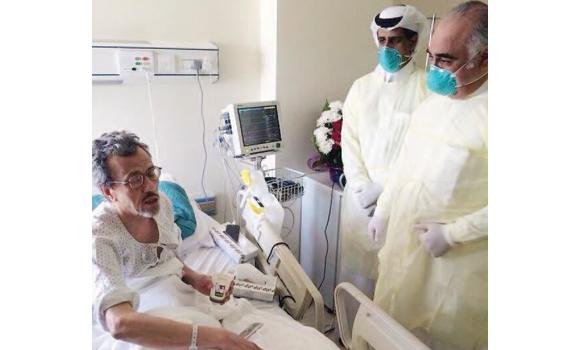
“We will contact medical experts in the US, Europe and Asia and take advantage of their knowledge and expertise,” Fakeih told reporters after following up on the MERS situation at King Fahd Hospital in Jeddah merely a day after being appointed acting health minister.
He said a special committee has been set up to monitor and follow up on MERS situation in the Kingdom.
The panel, he said, is tasked with analyzing laboratory reports and contacting global pharmaceutical companies and health experts to produce anti-coronavirus vaccinations.
The minister held a meeting with top officials and experts following his visit to the hospital, which was attended by high-ranking officials from the Health Ministry and directors of emergency wards at Jeddah’s public hospitals.
“The ministry will coordinate with health care experts both inside and outside the Kingdom to analyze information and determine the potential risks arising from the epidemic,” said Fakeih.
He said the ministry would provide logistical support to hospitals to deal with the virus.
He promised that he would address the media in full transparency and provide them with comprehensive information about the disease. “We will announce additional measures taken to contain the coronavirus.”
The MERS death toll has climbed to 81 in Saudi Arabia.
A 73-year-old Saudi who suffered from chronic illnesses died in Riyadh and a compatriot diagnosed with the virus, aged 54, died in Jeddah, the ministry said late on Monday.
Meanwhile, Greece has recorded its first case of the potentially fatal respiratory disease, and the patient is in critical condition.
The Health Ministry says the 69-year-old Greek national fell sick in Saudi Arabia, where he lives.
Jordan’s Health Ministry has reported an additional laboratory-confirmed MERS case. A ministry official told Petra that the patient is a 25-year-old Saudi who was hospitalized in Saudi Arabia from April 10 to 15 after suffering from pneumonia. He is stable at a private hospital in Amman.
The virus doesn’t spread easily between people, and no cases have been observed related to crowds, in schools or at football stadiums.





Comments
Add new comment